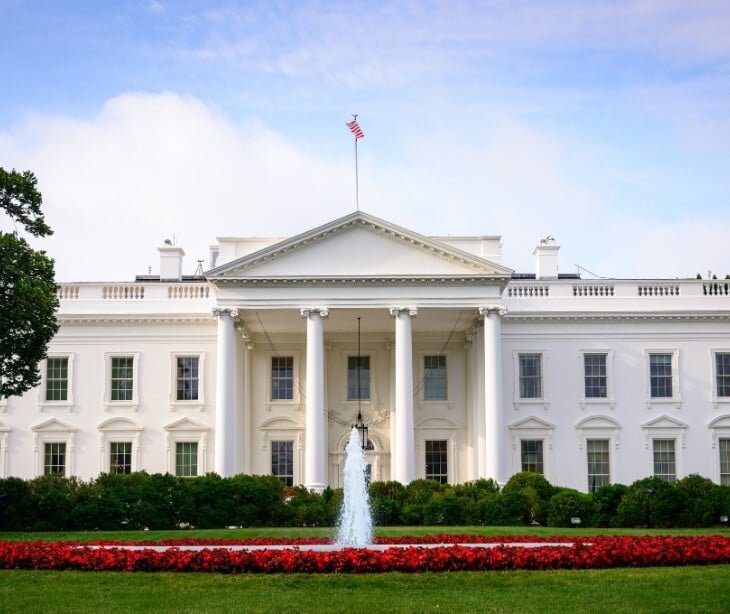2 min read
White House and tech giants pledge to build patient-centered digital health system
Farah Amod
Aug 13, 2025 1:06:34 PM

Federal agencies and over 60 tech and healthcare companies commit to creating a more secure, personalized, and connected healthcare experience by 2026.
What happened
At a White House event co-hosted with the Centers for Medicare & Medicaid Services (CMS), the Trump Administration announced commitments from Amazon, Apple, Google, OpenAI, Anthropic, and others to support a modernized, patient-centered healthcare ecosystem. The initiative aims to improve outcomes, reduce provider burden, and promote data interoperability across the U.S. healthcare system.
The effort centers on two pillars: a CMS Interoperability Framework for seamless data exchange and increased availability of user-friendly, secure digital health tools for patients.
Going deeper
The Office for Civil Rights (OCR) reiterated its support for expanding patient access to electronic health data while maintaining HIPAA compliance. At the event, CMS revealed voluntary data-sharing criteria to help networks and tech platforms align with the framework, ensuring consistent and secure health information access.
More than 60 companies pledged to deliver results in 2026. These include:
- 21 networks committed to becoming CMS-Aligned Networks
- 11 health systems pledged to support patient app use
- 7 EHR platforms promised to enable seamless digital intake tools
- 30 companies will launch apps focused on real-world outcomes, like managing diabetes, using AI for symptom checking, and replacing paper forms
CMS will introduce trusted digital tools through a new Medicare.gov app library and continue to develop modern infrastructure tools, such as:
- An updated Medicare Plan Finder
- A new FHIR-based National Provider Directory
- Faster access to claims data through Blue Button
- FHIR-based digital insurance cards
- Secure digital identity upgrades for Medicare.gov
What was said
CMS Administrator Dr. Mehmet Oz added, “The system hasn’t kept pace with the innovations seen in other industries. Today’s commitments mark a turning point.”
OCR Director Paula M. Stannard reaffirmed that expanding access to health records must be done without compromising privacy or security.
FAQs
What is the CMS Interoperability Framework?
It’s a set of voluntary criteria for how healthcare data should be securely and consistently shared across networks, EHRs, and platforms to empower patients and providers.
What are CMS-Aligned Networks?
These are health information networks that meet CMS’s interoperability criteria and can participate in trusted, patient-initiated data exchanges starting in 2026.
How will digital identity changes affect Medicare users?
CMS is working on modern digital identity systems that enhance security without disrupting existing user accounts, making it easier for beneficiaries to access their records.
Will these tools be available only to Medicare users?
While many initial tools focus on Medicare.gov and its users, the broader interoperability framework is expected to influence systems used across public and private healthcare sectors.
How does “killing the clipboard” improve care?
Replacing paper intake forms with digital check-ins reduces administrative time, improves accuracy, and gives providers more immediate access to patient history and preferences.




